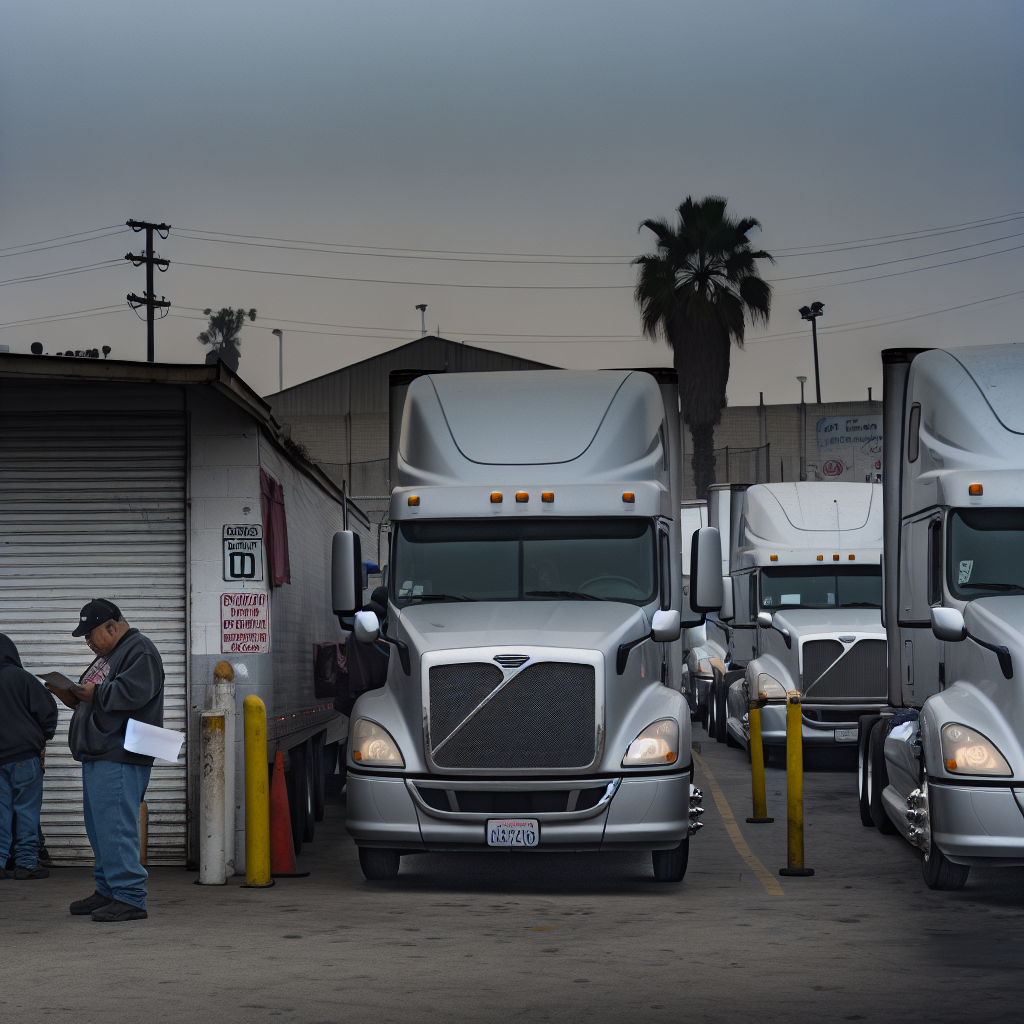California’s move to cancel roughly 17,000 non‑domiciled commercial driver’s licenses has kicked a statehouse dispute into a nationwide enforcement story — one that carriers and shippers can’t afford to ignore. State officials began notifying affected drivers this week that their credentials will expire in 60 days, after a federal review concluded the licenses were issued or maintained in ways that violated federal rules, including allowing validity dates to run past workers’ authorized stay in the U.S.
The Federal Motor Carrier Safety Administration followed up with a formal “conditional determination” laying out California’s corrective actions and documenting the scope of the rollback. In that filing, the agency cites the state’s own acknowledgement that approximately 17,000 non‑domiciled CLPs/CDLs are being rescinded as part of its compliance plan. For fleets, that translates into a real-world timeline: two months to confirm driver status, reassign equipment, or secure replacements.
Complicating the picture, a federal appeals court in Washington issued an administrative stay on November 10 that pauses FMCSA’s interim rule tightening who can obtain non‑domiciled CDLs. The agency clarified on November 13 that, while the new rule is on hold pending litigation, states under corrective action plans — like California — must still meet pre‑existing compliance requirements and any state‑specific directives stemming from the audit. In short: the broader rule is paused, but the enforcement pressure on California remains very much in effect.
The political rhetoric has been loud, but the operational stakes are louder. USDOT says California’s 60‑day cancellation notices are out the door; state leaders contend they were following prior federal guidance and that affected drivers previously held valid work authorization. However those arguments are resolved, carriers employing California‑licensed non‑domiciled drivers will be the ones juggling schedules, re-qualifications and potential service failures in December and January.
Why this matters outside California: FMCSA’s audit is national in scope, and enforcement signals from Washington suggest other states could face similar reviews and remedial orders. In market terms, one Wall Street analyst notes that removing 17,000 CDLs equates to a meaningful share of California’s for‑hire driver base and could firm outbound pricing if those drivers ultimately exit interstate operations. Even if the near‑term capacity impact proves uneven, the liability and compliance exposure for hiring non‑domiciled CDL holders has clearly gone up.
What the court stay actually changes — and doesn’t: The D.C. Circuit’s administrative stay means states are not barred, for now, from issuing non‑domiciled CDLs under the prior framework. But that relief is narrow. States already placed on corrective action plans still must demonstrate compliance with existing federal regulations and any state‑specific fixes demanded by FMCSA. California’s cancellations, tied to that corrective process, are proceeding on their own track regardless of the paused rule.
Risk and readiness for fleets: With 60‑day clocks ticking, carriers should immediately (1) audit driver files for lawful‑presence documentation and license status; (2) verify each driver’s current eligibility with the state licensing agency and confirm no pending downgrade; (3) update hiring policies to require SAVE/immigration status verification evidence where applicable; and (4) coordinate with insurance brokers on any changes to risk profiles tied to non‑domiciled credentials. Those steps won’t resolve the policy fight, but they can keep a paperwork problem from becoming a service failure or claim.
The bottom line for trucking: California’s cancellations are a near‑term capacity and compliance event; the court stay is a procedural speed bump; and FMCSA’s audit — plus the threat of funding penalties for states deemed noncompliant — ensures this story will continue to ripple across driver recruiting, pricing and liability decisions through the peak holiday push and into Q1. Carriers with heavy California exposure should plan for selective tightening and higher vetting costs even if broader spot rates remain tethered to soft demand.
Sources: FreightWaves, FMCSA, Transport Topics, Associated Press
This article was prepared exclusively for TruckStopInsider.com. Republishing is permitted only with proper credit and a link back to the original source.





